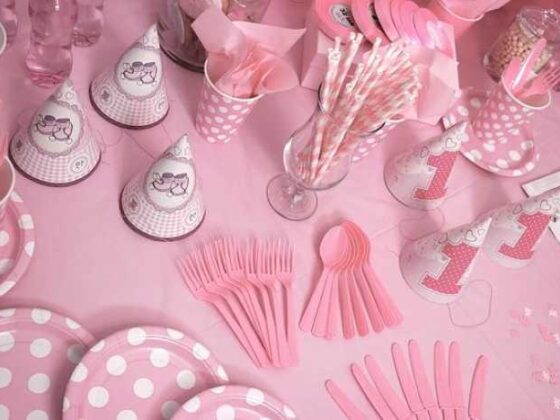Becoming a new parent is absolutely exciting-but let’s be real, it can also feel totally overwhelming! Between all the advice from well-meaning friends, endless Google searches, and those tiny cries you can’t always interpret, figuring out how to keep your little one healthy might seem like a full-time job.Don’t worry, though! This newbie parents’ guide is here to break down the baby health basics into easy, manageable tips that anyone can follow. Whether you’re wondering about diaper rashes,feeding schedules,or when to call the doctor,we’ve got your back. Let’s dive in and make those first months a little bit smoother!
Choosing the Right Nutrition for Your Little One
When it comes to feeding your baby, simplicity and balance are your best friends. In the first months,breast milk or formula should be your go-to sources of nutrition,packed with all the essentials your little one needs to grow strong and healthy. as your baby grows, introducing solid foods becomes the exciting next step.Keep in mind, each new taste and texture is a mini adventure for your baby’s developing palate.Start with single-ingredient purees like sweet potatoes,carrots,or apples to help detect any sensitivities. Variety is key, so mix it up while keeping things gentle and easy to digest.
Here’s a rapid guide to help you plan those early meals like a pro:
- Go slow: Introduce one food at a time, waiting 3-5 days before the next new item.
- Watch for reactions: Keep an eye out for any signs of allergies or intolerance.
- Stay nutrient-focused: Include iron-rich options like pureed meats or fortified cereals as solids increase.
- Hydration matters: Offer small sips of water once solids are underway, but breast milk or formula remains primary.
| Age | Recommended Nutrition | Exmaple Foods |
|---|---|---|
| 0-6 months | Breast milk or formula | Exclusive feeding |
| 6-8 months | Breast milk + solids | Pureed veggies/fruits, iron cereals |
| 8-12 months | Breast milk + variety | Mash foods, soft finger foods |
Simple Sleep Tricks That Actually work for Baby
Getting your little one to sleep soundly can feel like a mystery, but a few straightforward methods can make nights easier for both baby and parents. Creating a consistent bedtime routine is a game-changer – think warm baths,soft lullabies,and dim lighting to signal it’s snooze time. Also, try to keep the sleep surroundings cozy and quiet. Babies love a snug swaddle or a sleep sack that gives them that comforting “womb-like” feel without the risk of loose blankets.
Try these quick tricks to help your baby drift off faster:
- use white noise machines or apps to mimic soothing womb sounds
- Rock gently or sway slowly before putting baby down
- Introduce a soft, safe lovey or blanket for comfort
- Make feedings calm and quiet to avoid over-stimulation
| Sleep Tip | Why It Works |
|---|---|
| Swaddling | Reduces startle reflex, promotes calm |
| White Noise | Blocks disruptive sounds, mimics womb environment |
| Consistent Bedtime | Builds a reliable sleep cue |
| Gentle Rocking | Soothes nervous system, encourages relaxation |

Keeping Baby Clean and Comfy Without the Stress
Keeping your little one fresh and snuggly doesn’t have to feel like a full-time job. Start by creating a simple routine that fits your lifestyle-consistency is key! Use gentle, fragrance-free baby wipes for quick cleanups during diaper changes, and keep a small stash handy in every diaper bag and nursery spot. When it’s bath time, opt for lukewarm water and a mild baby wash to avoid drying out tiny, sensitive skin. Remember, less is more-too much washing or scrubbing can irritate their delicate skin, so a few minutes of gentle care is all it takes to keep baby clean.
Comfort is just as important as cleanliness. Dress your baby in breathable, soft fabrics like cotton that allow airflow and prevent overheating. Pay attention to diaper fit-not too tight or loose-to reduce the risk of rashes and discomfort. Here’s a quick checklist to keep baby comfy AND clean:
- Change diapers frequently to prevent moisture buildup
- use moisturizers recommended for baby skin to soothe dryness
- Keep nail trims regular to avoid accidental scratches
- Choose easy-to-remove clothes for hassle-free changes
| Tip | Why It Helps |
|---|---|
| Gentle Wipes | Quick & soothing cleanup, no harsh chemicals |
| Soft Cotton Clothing | Breathable and gentle on skin |
| Regular Diaper Changes | Prevents irritation and rash |
| moisturize Often | Keeps skin hydrated and happy |
When to Call the Doc and What to expect at Checkups
Knowing when to reach out to your pediatrician can feel overwhelming, but spotting the right moments is key to keeping your baby safe and healthy. If your little one has a fever over 100.4°F (38°C), shows signs of persistent vomiting or diarrhea, struggles to breathe, or isn’t feeding well, it’s time to call the doc. Also,sudden changes in behavior like excessive fussiness,lethargy,or unusual rashes should never be ignored. Remember, trust your gut-if something feels off, don’t hesitate to get professional advice.
During well-baby checkups, expect a thorough yet amiable visit where your pediatrician will track your baby’s growth and development closely. They’ll measure weight, length, and head circumference, check reflexes, listen to the heart and lungs, and review feeding and sleep habits. Vaccination schedules are discussed and administered here too. here’s a quick peek at typical checkup milestones:
| Age | Focus of Checkup | Common Shots |
|---|---|---|
| 1 Month | General health & feeding habits | Hep B (if not given at birth) |
| 2 Months | Growth, reflexes, social smile | DTaP, Hib, IPV, PCV |
| 4 Months | Motor skills, tummy time | Boosters for 2-month vaccines |
| 6 Months | Introduction of solids discussion | Influenza, more boosters |
Pro tip: Keep a simple checklist of any concerns or questions to bring to the appointment-it’s easy to forget in the moment, and your pediatrician will appreciate your engagement!
Q&A
Q&A: Newbie Parents’ Guide – Easy Tips for Baby Health Basics
Q: I just became a parent-how often should I be checking my baby’s temperature?
A: Congrats, new parent! No need to obsess, but if your baby seems out of sorts-like unusually fussy, lethargic, or feeding less-grab a thermometer and check. For infants under 3 months, any fever (100.4°F/38°C or higher) means a quick call to the pediatrician. Older babies can handle a little more, but trust your gut.Regularly checking isn’t necessary if they’re acting normal.
Q: What’s the deal with baby feedings? How do I know if they’re eating enough?
A: Newborns eat often, about every 2-3 hours. Signs of good feeding include steady weight gain, plenty of wet diapers (around 6-8 per day), and content baby after feeding. If your baby seems hungry or fussy shortly after feeding, try offering more. Remember, every baby is diffrent-some cluster feed, some graze.
Q: How critically important is tummy time, really?
A: Super important! tummy time helps your baby develop neck and shoulder muscles-key for milestones like rolling and sitting up. Start with a few minutes a day, gradually increasing as your little one gets stronger. Just keep a close eye-they’ll probably fuss at first, but stick with it!
Q: Is it okay to use over-the-counter meds for common baby issues?
A: Keep it simple and safe: always check with your pediatrician before giving any meds. for example, infant acetaminophen can definitely help with fever or discomfort, but dosing is based on weight, so be sure you’re precise.Avoid giving aspirin or adult medications to babies.
Q: What’s the best way to keep my baby healthy during cold and flu season?
A: Wash your hands like a pro and encourage visitors to do the same. Keep your baby away from sick folks, and clean toys and surfaces regularly. breastfeeding can boost immunity, so if you can, keep at it. And of course, stay up to date on your baby’s vaccinations.
Q: How do I know if my baby’s sleeping enough and sleeping well?
A: Newborns sleep a lot-up to 16-17 hours a day, though in chunks of a few hours at a time. Look for a consistent pattern forming over weeks, where your baby feels rested and alert during awake times. If sleep seems really off or your baby is super cranky, bring it up with your doc.
Q: should I be worried about my baby’s bowel movements?
A: Poop is weird but helpful! Newborn poop changes colour and texture depending on age and feeding-black and sticky at first, then greenish, then yellowish and looser if breastfeeding. Regular poops (several per day) and no signs of discomfort or blood are good signs. If you notice anything funky or lasting constipation/diarrhea,call your pediatrician.
Q: Any quick tips for keeping baby’s skin healthy?
A: Keep baths short and use gentle, fragrance-free baby soaps. After bathing, pat dry and apply a mild moisturizer to prevent dryness. Diaper rash? Change those diapers often and give some air time. if the rash sticks around or looks infected,check with your doctor.
There you go! Baby health doesn’t have to be complicated. Keep it simple, trust your instincts, and enjoy every tiny step of the journey!
Wrapping Up
And there you have it – a few simple, no-stress tips to keep your little one happy and healthy as you navigate this wild ride called parenthood. Remember, every baby is different, and it’s totally okay to learn as you go (because nobody gets it all right the first time!).Trust your instincts,lean on your support system,and don’t forget to take a breath – you’re doing an amazing job. Here’s to manny happy, healthy days ahead with your new bundle of joy!











